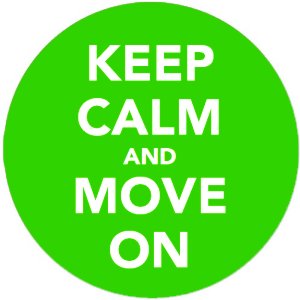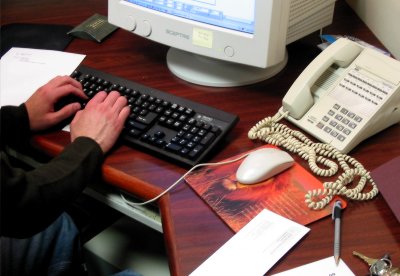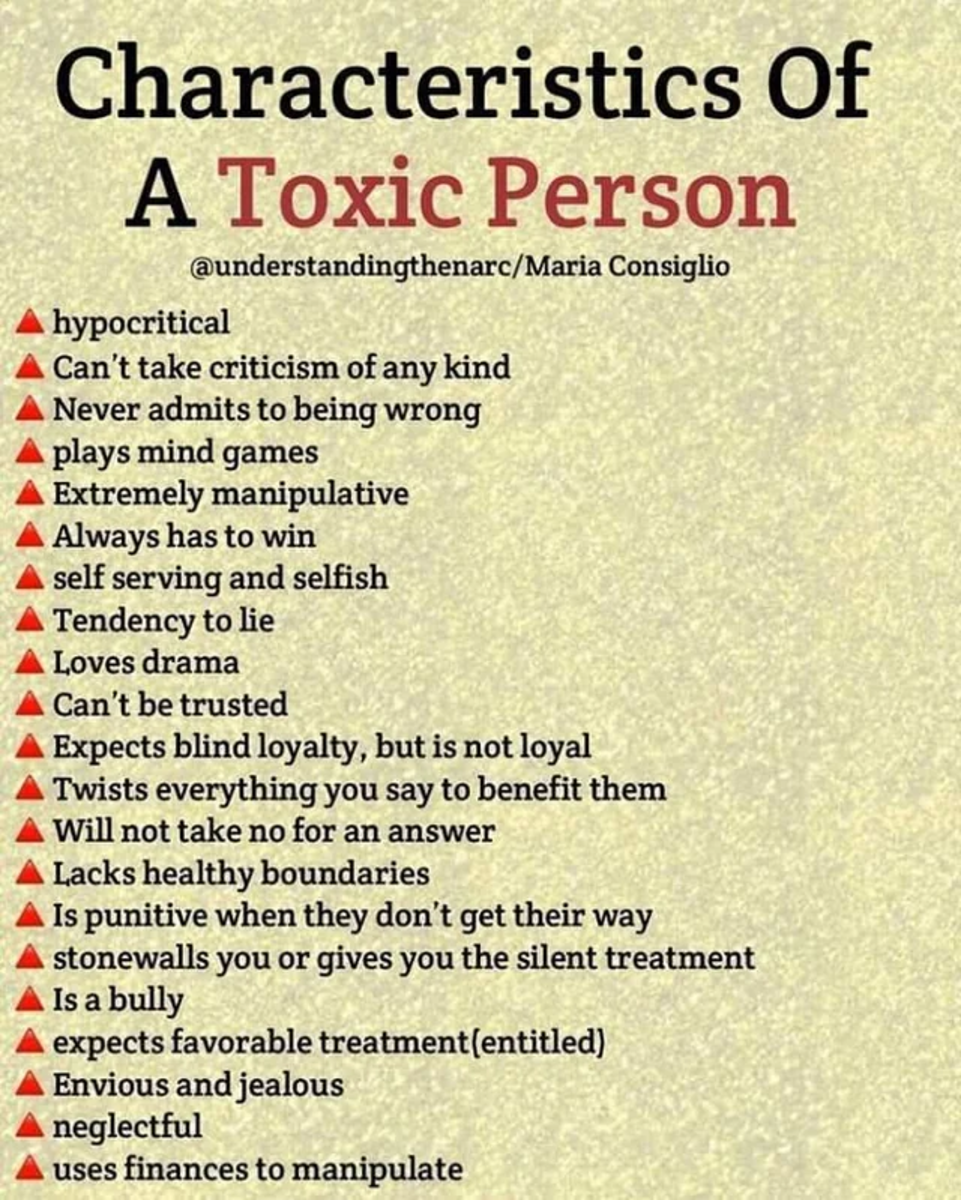How to Keep Calm and Move On After Losing a Job
Keep Calm and Move On

The Impact of Losing a Job
Losing a job can result from layoffs, downsizing, career changes, company restructuring or dissolving, retirement, health issues or life choices.
Whether being downsized, being fired from a job ending or a company dissolving is understandably going to have a major impact both personally and professionally on a person and all of his or her dependents.
Layoffs and company different than leaving a job. When leaving a job the employee makes the choice.
With a the loss of a job the choice is made by an employer, manager or company; this type of loss is generally out of the employee's control.
People are often surprised to discover that losing a job or becoming unemployed can result in feeling grief, the same feeling experienced following any other sudden unexpected loss or death.
Understanding the normal response to grief, learning several healthy coping strategies and using some positive, encouraging statements can help in keeping calm and moving on after being let go from a job.
Upsetting Your Career and Life
"It’s completely normal to feel panic after a job loss.
In fact, it may feel like the rug has been pulled out from under your career—and your life."
Lynn Joseph, Ph.D., The Job-Loss Recovery Guide
Normal Responses to Loss
Grief is the normal response to losing something or someone that is important. Different people will have different reactions to a job loss, but there are some core common feelings that are experiences by those grieving a loss.
Common responses to the loss include: anger, betrayal, hostility, mistrust, numbness, anxiety, depression, embarrassment, fear, guilt, self-blame and an additional loss of control and loss of confidence.
In addition of the emotional responses a grieving person can also develop physical symptoms. Common physical responses to a loss include headaches, abdominal pain, digestive (or gastrointestinal) symptoms like diarrhea or constipation, muscle aches, difficulty concentrating, absentmindedness, insomnia and fatigue. Someone who has lost a job may increase alcohol or other substances to try and numb the pain.
Understandably, these symptoms and emotions can impact a person’s ability to think clearly and to continue to participate in normal functions of daily living.
These responses can vary widely depending on how the supervisors and company delivered the news about the loss or downsizing.
Dyer KA. 2002. How to Cope with Loss, Grief, Death & Dying - Professionally and Personally. Presentation for The California Maritime Academy.
Jobs Provide Structure, Purpose and Meaning

Jobs Provide Meaning
Our jobs are much more than just the way we make a living.
They influence how we see ourselves, as well as the way others see us.
Our jobs give us structure, purpose, and meaning.
Melinda Smith, M.A., and Robert Segal, M.A., Helpguide.org
Secondary Losses Experienced with the Loss of a Job
When someone loses a job, there are additional or secondary losses that accompany the job loss. Some of the secondary, other losses that may result in addition to the job loss include:
- Loss of income
- Loss of security
- Loss of professional identity
- Loss of purpose or meaning
- Loss of self-esteem
- Loss of confidence
- Loss of routine
- Loss of work social network
- Loss of social status
- Loss of benefits
These secondary losses may be even more difficult to manage and harder to cope with than the initial job loss.
Keeping Your Head After Losing Your Job - Radio Interview
Common Normal Responses to Job Loss
Personal Responses
| Professional Responses
|
|---|---|
Numbness
| Anger at how the job loss was handled by managers or company
|
Depression
| Distrust of employers
|
Anxiety
| Jealous of others who have not lost a job or been downsized
|
Loss of Control
| Distrust of company
|
Anger and Hostility
| Distrust of management
|
Loss of Confidence, Self-blame
| |
Feeling like a failure
| |
Embarassment
| |
Fear, guilt
|
Adapted from Wilken C. Learning to Live Through Loss: When Job Loss Triggers Grief.
Experiencing Job Loss
Have you ever lost a job?
Keeping Your Head After Losign Your Job

Learning to Live Through Loss
- Learning to Live Through Loss: When Job Loss Triggers Grief
Losses of all kinds bring grief. If you have lost your job, you may find yourself dealing with a wide range of unexpected emotions.
Coping with Job Loss - Dr.Dr. Frank Doberman
Healthy Ways of Coping with Loss
When coping with a loss it is important to focus on the basics making sure to eat health foods, exercise, manage expectations and stress.
- Take it one day or even just one hour at a time.
- Maintain a normal routine.
- Make health food choices.
- Find a healthy way of managing stress. Breathe, meditate, exercise.
- Regular exercise can relieve tension and boost mood.
- Don't take the job loss too personally.
- Try to maintain a sense of humor.
- Reach out to those who can support and encourage you.
This short list of healthy coping strategies are ones I have been recommending to patients, friends and family.
Resources for Coping with Job Loss
- How to Cope with Job Loss - Business Insider
Losing a job can lead to negative feelings (inadequacy, embarrassment, insecurity and devastation). Recovery can take time, making it easy to become depressed or anxious. - Coping with Job Loss
Job loss often triggers a period of adjustment and transition with common emotions or phases including disbelief, anger, bargaining, depression, and acceptance.
Tips for Coping with Job Loss - Dr. Sudeepta Varma
Vote on the Best Encouraging Statement
Which of these Quotes is Your Favorite Encouraging Statement?
Use Positive Statements
What you think, the soundtrack of the mind, can impact how you feel and change the reality.
The greatest discovery of all time is that a person can change his future by merely changing his attitude.
Oprah Winfrey
Finding a favorite positive quote to repeat as a motivational mantra whenever feelings of fear, doubt or self-blame can help in shifting the internal soundtrack from negative to positive statements.
"Keep Calm and Move On," "Trust the Journey" and "Breathe, Just Breath" are simple, positive quotes that can create a shift.
Keeping positive quotes so you can see them (e.g. posters, mugs, jewelry etc.) can provide a visual cue to get you thinking of being positive any time the quote is seen.
More on Using Breath and Breating to Stay Calm
- Breathe, Breath Work and Breath Walking: Ways to Relax and Destress
Breathing is a powerful relaxation tool that is readily available and under our control. Simply slowing down to focus on the breath can have powerful effects on one's ability to cope with stress.
Keep Calm and Carry On

Blessings in Disguise
What seems to us as bitter trials
are often blessings in disguise.
Oscar Wilde
Look for Open Doors
When one door closes,
another one opens;
but it is torture in the hallway.
An Unknown Wise Person
Turn a Failure into Success
There are many, many examples of famous people who lost jobs or had significant failures before they experienced success.
Einstein, Oprah Winfrey and Michael Jordan are just three of the highly successful people who found a better path and turned a failure into a success.
Use these examples as inspiration and motivation the good outcomes can happen to help in making it through the challenging initial days following a job loss.
Motivation from Famous Failures
10 Tips for Moving On After a Job Loss
- Acknowledge the loss, but look to the future.
- Focus on the things you can control or change, instead of what cannot be changed.
- Take Care of Yourself (Eat, Exercise, Sleep Manage Stress)
- Keep a positive attitude.
- Maintain a sense of humor.
- Remind yourself that your job does not define you.
- Write out a list of positive traits and job skills.
- Regard finding a job as the new job.
- Be open to new ideas and new opportunities.
- Contact positive, supportive friends, family and social networks.*.
* Being in touch with family, friends and social network may help in brainstorming, open doors and lead to unexpected, unanticipated opportunities.
More Strategies for Bounding Back from Job Loss
- Bouncing Back from Job Loss: The 7 Habits of Highly Effective Job Hunters
If you look at job loss, like any setback from an enlarged perspective, you realize that success in life is measured far less by our opportunities than by how we respond to life’s setbacks and challenges.
Maintaining a Sense of Humor Can Help
Whether dealing with the loss of a job or another major loss, humor can help make it easier to cope with loss.
Therapeutic humor specialist and author of The Healing Power of Humor, Allen Klein stresses the importance of humor with unbearable losses:
Humor can help you cope with the unbearable so that you can stay on the bright side of things until the bright side actually comes along.
Being able to maintain a sense of humor can be key in coping with a major loss.
Silly expressions, like Yoda's version of the "Keep Calm and Carry On" "Calm You Shall Keep and Carry On You Must" are an easy way of using humor as a positive humorous statement.
Let the Force Be with You

Find a Positive Humorous Expression to Repeat
Humorous and silly expressions, like "Keep Calm and Move On" or Yoda's version of the "Keep Calm and Carry On" "Calm You Shall Keep and Carry On You Must" are an easy way to use humor as a positive statement that you can read and repeat to yourself to keep focusing on something funny instead of thinking of the losses.
Yoda's mug with the classic expression "Calm You Shall Keep and Carry On You Must" is a fun way to keep smiling and keep the force with you as you face everyday challenges.
More Helpful Resources to Cope with Unemployment
- Keep Calm and Carry On – Losing Your Job and How to Deal
Layoffs are all too common these days. The worst part about lay-offs is that they aren’t your fault. - Job Loss & Unemployment Stress: Staying Positive During Your Job Search
Tips for dealing with the stress of job loss and unemployment and taking control of the situation. - How to Survive a Lay Off
A To-Do List for coping with a job layoff.
© 2014 Kirsti A. Dyer








